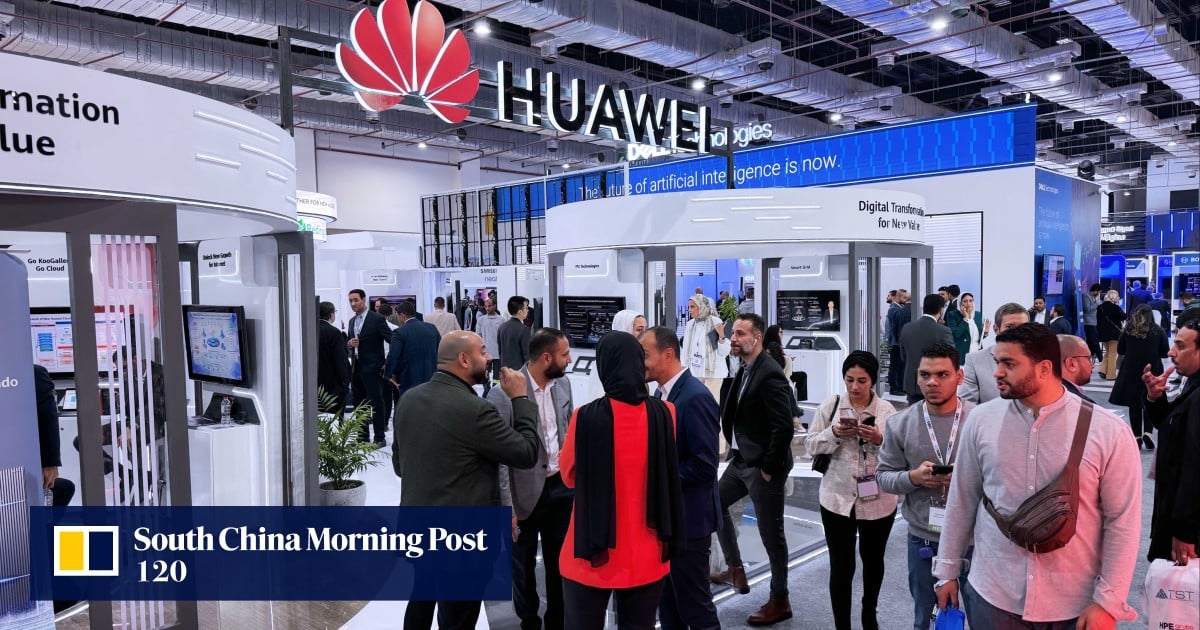Huawei Technologies said it will provide cloud, 5G and artificial intelligence (AI) solutions to Chinese conglomerate Hailiang Group, a leading player in the global copper pipe market, as the US-sanctioned telecommunications giant seeks to diversify its revenue streams through deals with traditional industries.
Under a strategic partnership signed on Monday, the two companies will work together on the research and application of digital management solutions, advanced manufacturing, smart education and green energy, among other areas, according to an announcement by Huawei.
Hailiang, one of the world’s biggest copper pipe producers with business interests across mining, education, agriculture and real estate, has been working with Huawei since 2022 on its digital management and cloud migration strategies, according to the company.
Focus on digital links as China releases 10-year belt and road blueprint
Focus on digital links as China releases 10-year belt and road blueprint
Hailiang operates copper tube and pipe production facilities in the US, Germany, France, Italy, Spain, Vietnam, Thailand and Indonesia. The company is considered one of the champions of Beijing’s “going out” strategy to promote Chinese enterprises overseas. In the US, it has a plant in Sealy, Texas. In June this year, it started building a copper sheet factory in Indonesia with a planned annual output capacity of 100,000 tonnes.
The partnership with Huawei will help accelerate Hailiang’s digital transformation, Zhang Pingan, chief executive of Huawei’s cloud unit, said on Monday.
Huawei will provide technologies in cloud computing, big data, AI foundation models, and 5G to facilitate Hailiang’s digital transformation, according to the statement.
The latest deal comes amid Huawei’s ongoing efforts to forge deeper ties with traditional industries and corporations to diversify its revenue streams, after being hit by US trade sanctions in 2019.
To work closer with its enterprise clients, Huawei established so-called “legions” in October 2021, to connect with a variety of industries. These cross-departmental groups, called juntuan in Chinese, focus on digital transformation products and services for smart mining, customs and ports, technologies to reduce energy consumption at data centres, smart systems for highways, and photovoltaics.

The enterprise business was the fastest-growing segment among Huawei’s three core units, with revenues surging 30 per cent year on year in 2022 to 133 billion yuan (US$18.7 billion), compared to a 12 per cent decline in its consumer group and a marginal 0.9 per cent gain for its carrier business.
In July, Huawei unveiled the 3.0 version of its Pangu AI model, joining a cutthroat race among Chinese companies on generative AI, but with a focus on industrial uses in sectors including coal mines, finance and government.
Aside from helping traditional industries, Huawei has made a foray into the electric vehicle sector, with the high-profile launch of Aito cars, a joint brand with Chinese electric carmaker Seres. It also offers smart car components to the auto industry.

